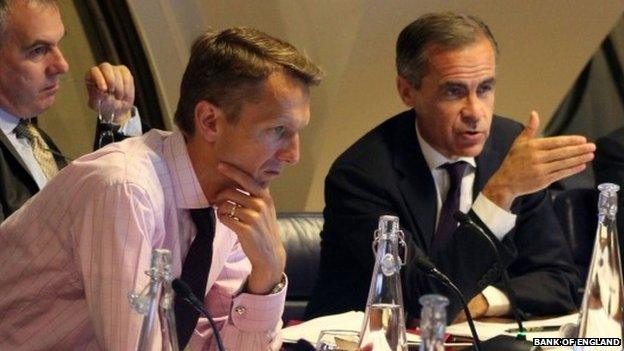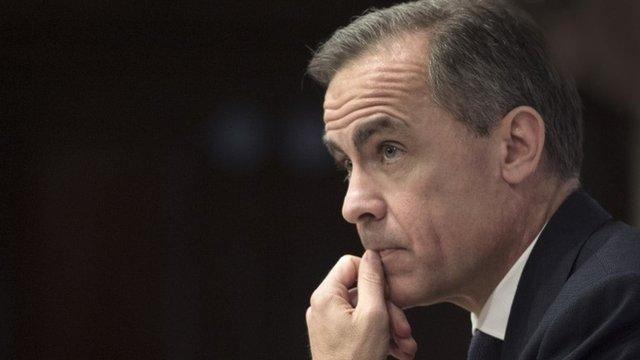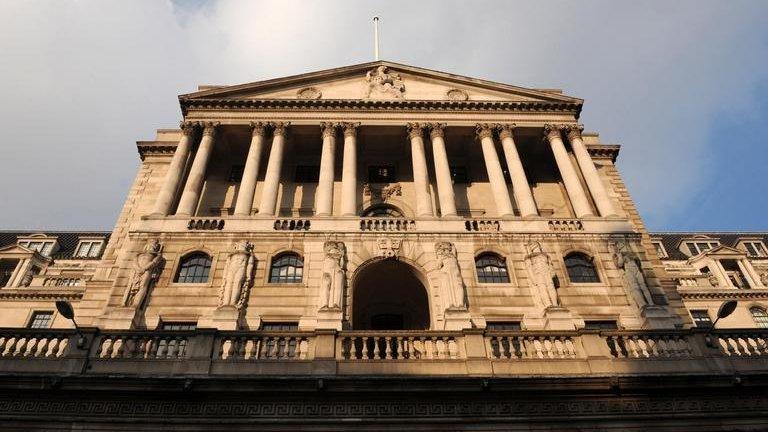Interest rates could fall further, says Bank economist
- Published

Andy Haldane, left, with Bank of England governor Mark Carney
The chief economist of the Bank of England has said UK interest rates are as likely to fall further as to rise.
Speaking in a personal capacity, Andy Haldane - a member of the Bank's Monetary Policy Committee (MPC) - said he could not see a strong case for a move in either direction.
BBC economics editor Robert Peston described the comments as "big stuff".
UK interest rates were reduced to 0.5% in March 2009 and have remained at that level ever since.
In February, the Bank changed its guidance and hinted that rates could be cut further if the economy needed additional stimulus.
Up to that point, most commentators and investors had assumed that a rate rise was most likely to happen late this year or early next.
But Mr Haldane said that if a computer algorithm set rates rather than the MPC, then "the optimal path for interest rates would involve them being cut in the short-run towards zero for around a year".
Sterling fell sharply against the US dollar following the comments - at one point in late afternoon trading, it was 1.5% lower at $1.4738.
Low inflation
The low-rate environment has been caused in part by consistently low economic growth, said Mr Haldane, speaking at a business lunch in Rutland.
"Over the past two years, this story has subtly changed," he said, with UK growth stronger than expected.
Despite this, "inflation has consistently and significantly undershot the Bank's forecasts since 2012, in particular over the past 12 months," he said.
The MPC believes that UK inflation - currently at a record low of 0.3% - will remain close to zero in the near-term, before rising over two years to the government's inflation target of 2%.
But Mr Haldane said: "The risks to inflation at that horizon are plainly two-sided. But my personal view is that these risks are skewed to the downside."
The low-inflation picture is mirrored globally, with 40 countries actually experiencing deflation.
The sharply falling oil price has contributed to this effect, he said, as have falling agricultural commodity prices and low wage growth.
- Published17 February 2015

- Published10 March 2015

- Published8 January 2015
